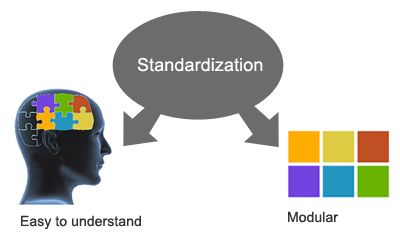- Rules/Laws
- Technologies
- Products
- Services
- Behaviours/Performance
- Measurements
We aim to create efficient, results-driven standards and strategies, especially when our product/service will go through multiple channels locally and internationally.
Standardization is the process by which our company has made its methods and processes uniform throughout the organization & business. It is the logical systems put in place to streamline every process in your workday.
Rather than taking each situation as it arises, we react according to a set list of instructions and protocols.
Our goal is to make sure every action taken generates a proven business result.
Standardization in companies is meant to achieve cost saving, increased customer satisfaction and improve competitiveness no matter the channel used or country of purchase/we are doing business with.
- Data
- Metrics
- Process
- System
There are many business reasons for standardizing processes including:
- Operational efficiency
- Reduction of deviations
- Higher Productivity & Output
- Ability to scale
- Easier Process Improvement
- Easier Onboarding and outsourcing
- Improves clarity
- Guarantees quality
- Perfects customer service
When done correctly, putting standards in place can increase your bottom line by a surprising amount.
Every task we do — regardless of how often we do it — have set rules that define the scope, quality, and methods to be followed.

Some benefits of standardization are as follows:
- Improves clarity — because a standard process will eliminate the need for guesswork or extra searching
- Guarantees quality — because work is done in a pre-defined, optimized way
- Promotes productivity — because your employees won’t need to ask around or comb documentation to get answers
- Boosts employee morale — because employees can take pride in having mastered the process and refined their skills
- Perfects customer service — because every ticket is handled in the best possible way

